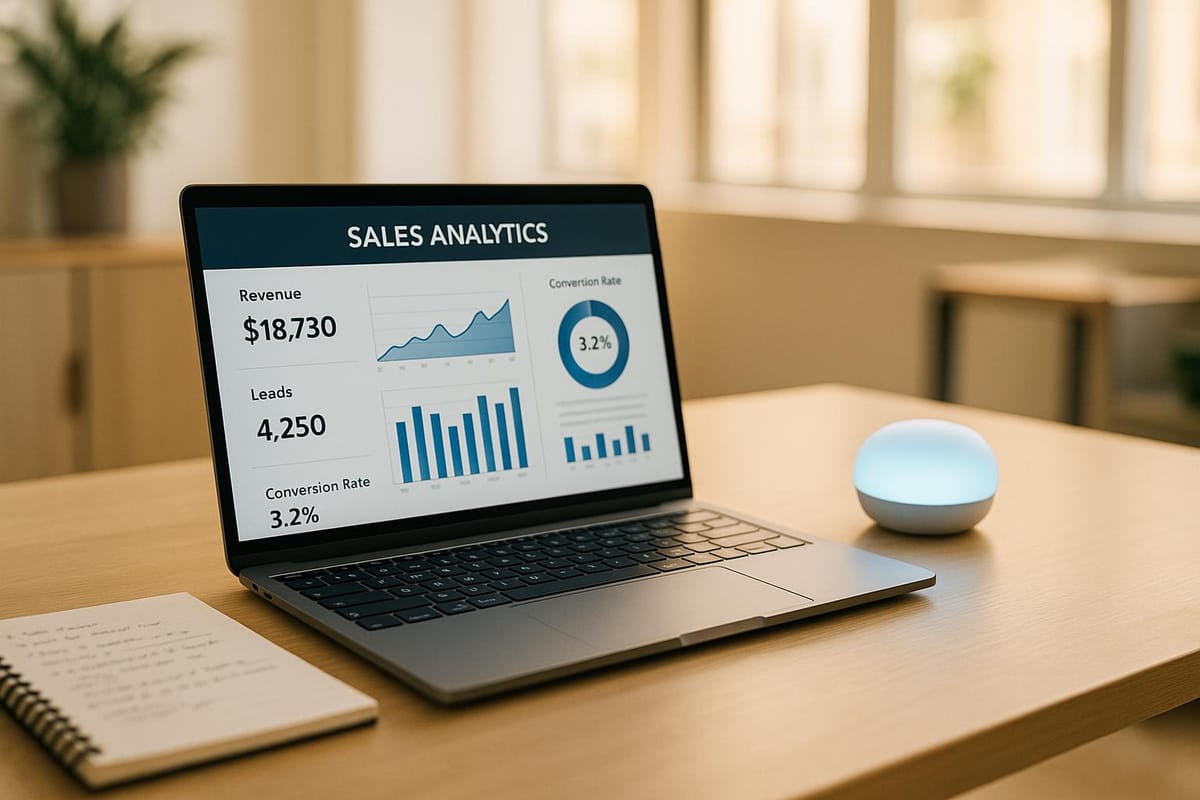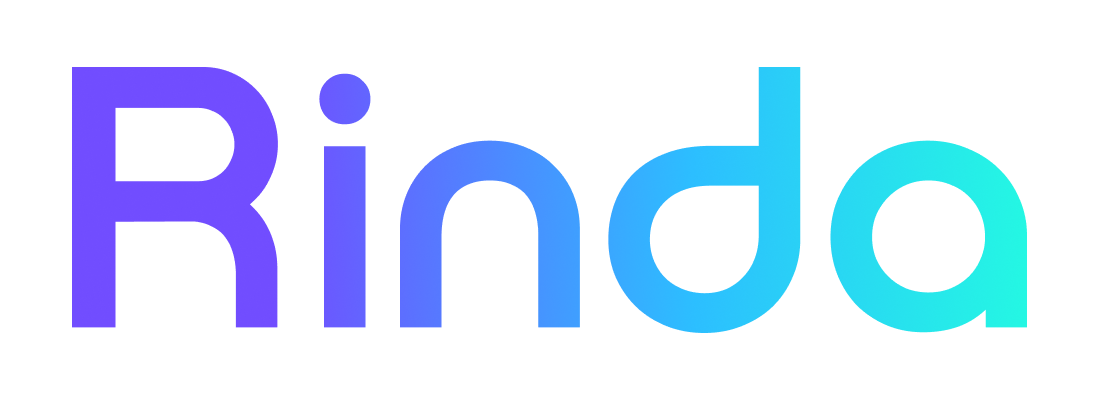4 AI Strategies to Boost B2B Sales Prospecting
Discover 4 powerful AI strategies to streamline sales prospecting, boost lead quality, and close deals faster. Learn how to leverage AI effectively.

In the competitive world of B2B sales, professionals often wrestle with the time-consuming nature of prospecting. Hours are spent researching, identifying leads, and crafting personalized outreach - only to fall behind on quotas and miss golden opportunities. But what if artificial intelligence (AI) could do the heavy lifting, freeing up your time and delivering leads with pinpoint precision?
This article dives into how AI is transforming sales prospecting, allowing businesses to streamline processes, target high-quality leads, and ultimately close deals faster. By embracing the right AI strategies, South Korea-based professionals aiming to expand globally can gain an edge in international markets.
The Problem with Traditional Prospecting
Prospecting has long been a labor-intensive process. Sales teams spend hours scouring the web for company news, LinkedIn profiles, and other relevant details to personalize their outreach. While this approach can yield results, it often comes at the cost of inefficiency.
Imagine dedicating two hours to researching five leads without sending a single email. That's a common reality for many sales professionals today. Meanwhile, quotas are looming, and competitors may already be a step ahead. AI promises to change the game, accelerating the process and ensuring higher-quality outcomes.
How AI Transforms B2B Sales Prospecting
AI isn't just a shiny new tool; it's a transformative technology that eliminates inefficiencies and enables smarter, faster prospecting. Here are four game-changing ways AI is driving results:
1. Predictive Lead Scoring: Targeting Leads with Precision
Traditional lead scoring systems often rely on simplistic metrics, such as a prospect visiting a website or downloading a white paper. While useful, this approach can result in large volumes of unqualified leads and low conversion rates.
AI-driven predictive lead scoring takes this concept to the next level by analyzing a wide array of data points, including:
- Technographic data: What technologies is the company using?
- Hiring patterns: Are they expanding in key areas related to your offerings?
- Recent funding: Have they secured capital that signals readiness to invest?
- Competitive intelligence: What are their competitors doing?
For example, instead of flagging 200 leads with a 2% conversion rate, AI could identify 50 high-quality leads with an 18% conversion rate. The result? A sharper focus on the prospects most likely to convert, saving time and boosting efficiency.
2. Deep Account Intelligence: The "Why" Behind Outreach
Many sales professionals mistakenly see AI as a shortcut for generating basic email drafts. But its true power lies in providing rich, actionable insights that elevate personalization.
AI can analyze your company’s solutions, case studies, and market trends to identify compelling events and pain points within a prospect’s business. For example, AI might surface insights such as:
- The prospect is hiring customer success managers, signaling a focus on customer retention.
- Their CTO recently discussed scalability challenges in a podcast.
- A competitor raised Series B funding, increasing pressure on your prospect to innovate.
Armed with this level of detail, sales teams can craft highly tailored messages that resonate deeply with prospects’ needs. This isn’t just personalization; it’s relevance at scale.
3. Personalization at Scale: Combining Quality and Quantity
Personalized outreach has historically been a trade-off: you can either reach a few leads with tailored messaging or blast generic emails to thousands. AI bridges this gap by enabling both personalization and scalability.
For example, AI could generate an email like:
"Hi [Prospect],
I noticed your company is expanding into European markets, and I’d like to share how we’ve helped similar organizations navigate compliance challenges during international growth. Here’s a quick case study…"
This approach allows you to maintain a personal touch while reaching far more prospects than manual research alone would allow. The result? Higher response rates, shorter sales cycles, and more closed deals.
4. Real-Time Trigger Event Detection: Acting at the Perfect Moment
Timing is everything in sales. AI can monitor millions of signals across your prospect base - such as leadership changes, funding announcements, regulatory updates, or new technology adoption - and alert you when it’s the right time to reach out.
For instance, if a VP of Sales at a target company steps down, you can immediately send a tailored message offering interim sales solutions. This agility ensures you're always one step ahead, seizing opportunities before competitors even notice them.
Why AI Won’t Replace Sales Professionals
A common misconception is that AI will render sales teams obsolete. While AI automates repetitive tasks like data gathering and research, it doesn’t replace the human touch required to build relationships, handle objections, and close deals.
Think of AI as your ultimate sidekick - like Jarvis to Iron Man. It equips you with the tools and insights needed to excel, but the core responsibilities of selling, negotiation, and relationship management remain firmly in human hands.
Key Takeaways
Here’s a quick summary of how AI can transform your sales prospecting process:
- Maximize Efficiency: Replace manual research with AI-driven insights to save time.
- Improve Lead Quality: Use predictive scoring to focus on prospects with the highest likelihood of conversion.
- Leverage Deep Insights: Go beyond surface-level data to craft messages tailored to your prospects’ specific challenges.
- Act on Real-Time Events: Use AI to monitor trigger events that signal the perfect time to reach out.
- Achieve Personalization at Scale: Balance outreach volume with high-quality, tailored messaging.
- Retain Control: AI supports sales professionals but doesn’t replace the human touch required for closing deals.
Final Thoughts
AI is not a replacement for salespeople. Instead, it’s a powerful enabler that helps you work smarter and achieve better results with less effort. By integrating predictive lead scoring, deep account intelligence, personalization at scale, and real-time trigger detection, you can transform your prospecting process into a streamlined, results-driven operation.
For South Korea-based professionals seeking to expand into global markets, now is the time to embrace this technology. The companies that adapt and integrate AI effectively will stand out in competitive international markets, while those clinging to outdated methods risk being left behind.
The future of B2B sales is here - and it’s powered by AI. Are you ready to step into it?
Source: "4 Ways You Should Be Using AI In Your Sales Strategy" - Chris Bussing, YouTube, Jan 1, 1970 - https://www.youtube.com/watch?v=bA7Ju00xMx0
Use: Embedded for reference. Brief quotes used for commentary/review.
Related Blog Posts
- 5 AI automation strategies for finding international buyers
- AI Skills Worth $18K More: How 66,000 Job Posts Are Reshaping B2B Sales Teams in 2025
- From Cold Calls to AI Agents: How B2B Sales Hit 82% Higher Conversions with Personalization at Scale
- From Email to AI Agents: The Evolution of B2B Sales Automation in 2025
